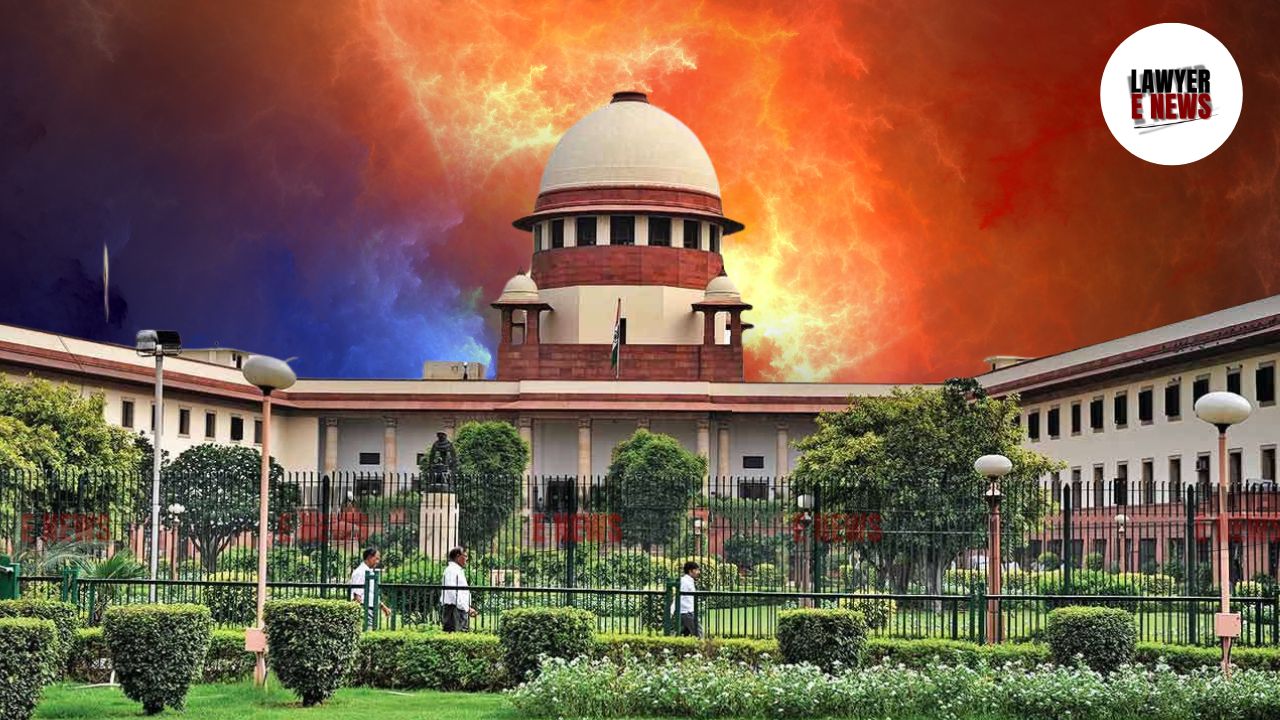-
by Admin
15 February 2026 2:36 AM



Section 63 is Not Limited to Distribution Licensees or Generating Companies – SC Clarifies Scope of Tariff Determination Powers. In a significant ruling Supreme Court of India allowed the Municipal Corporation of Delhi (MCD) to proceed with its Waste-to-Energy (WTE) project under Section 63 of the Electricity Act, 2003. The Court quashed the Appellate Tribunal for Electricity's (APTEL) decision that had invalidated orders of the Delhi Electricity Regulatory Commission (DERC), which had approved the bidding process and tariff for the WTE project at Narela-Bawana.
The judgment, authored by Justice B.R. Gavai, with Justice K.V. Viswanathan concurring, held that Section 63 of the Electricity Act does not restrict the right to apply for tariff adoption only to distribution licensees or generating companies. The MCD, as a statutory body and a local authority under Rule 15 of the Solid Waste Management (SWM) Rules, 2016, was empowered to conduct a transparent bidding process for a WTE project and seek tariff adoption.
The case revolved around a Waste-to-Energy (WTE) project planned by the Municipal Corporation of Delhi (MCD) to process 3,000 tonnes per day (TPD) of municipal solid waste (MSW) at Narela-Bawana. The project, which is part of MCD’s statutory duties under the SWM Rules, aimed to generate 28 MW of renewable energy.
MCD initiated a competitive bidding process in July 2022 under Section 63 of the Electricity Act. After evaluations, the lowest bid was awarded to JITF Urban Infrastructure Limited at a levelized tariff of ₹7.38/kWh. DERC approved the tariff and directed Delhi’s distribution licensees (Discoms) to enter into power purchase agreements (PPAs).
However, APTEL set aside DERC’s approvals, holding that MCD, as a local authority, lacked the jurisdiction to apply for tariff adoption under Section 63 of the Electricity Act. Aggrieved by this decision, MCD approached the Supreme Court.
MCD’s Authority to Undertake WTE Projects
The Court held that Rule 15 of the SWM Rules, 2016, imposes a statutory duty on local authorities like MCD to facilitate the construction, operation, and maintenance of WTE projects for processing municipal solid waste. Rule 15 specifically mentions WTE as a priority technology for MSW management, making it a mandatory obligation for municipal bodies.
“The MCD was fulfilling its statutory obligations under Rule 15 of the SWM Rules. It was neither a stranger to the bidding process nor acting without authority,” the Court stated.
Interpretation of Section 63 of the Electricity Act
The Court ruled that Section 63 of the Electricity Act does not limit the right to apply for tariff adoption to distribution licensees or generating companies. A plain reading of the provision shows that its primary requirement is that the tariff must be determined through a transparent bidding process in line with Central Government guidelines.
“Section 63 of the Act does not restrict the powers of the State Commission to adopt tariffs only for applications made by Discoms or generating companies. A contrary interpretation would artificially limit the scope of the provision,” the judgment noted.
The Court criticized APTEL for reading unwarranted restrictions into Section 63, holding that such an interpretation would defeat the provision’s legislative intent.
Harmonization of Section 63 with Section 86(1)(b)
The Court emphasized that Section 63 must be read in conjunction with Section 86(1)(b) of the Electricity Act, which mandates State Commissions to regulate electricity purchase and procurement, including tariffs for power sourced from "other sources."
“The provisions of Section 63 must be harmonized with Section 86(1)(b), which empowers State Commissions to regulate all electricity procurement processes, whether from generating companies, Discoms, or other sources like MCD’s WTE project,” the Court observed.
The judgment also drew on principles of harmonious construction, cautioning against interpretations that render statutory provisions redundant.
Public Interest in Waste Management
The Court highlighted the importance of WTE projects for addressing the pressing issue of waste management in urban areas like Delhi. It noted that the Narela-Bawana WTE project would contribute to both environmental sustainability and renewable energy generation.
“The APTEL failed to consider that the WTE project was in the larger public interest, addressing the urgent need for waste disposal in Delhi while promoting renewable energy,” the Court stated.
Integration of SWM Rules and Electricity Act
The Court underscored that provisions of the SWM Rules and Electricity Act must be read together. Rule 6.4 of the National Tariff Policy, 2016, mandates Discoms to procure 100% of the power generated by WTE plants, aligning with Section 86(1)(e) of the Electricity Act, which promotes renewable energy.
Supreme Court’s Directions
Appeals Allowed: The Supreme Court quashed APTEL’s judgment and upheld DERC’s orders of March 6, 2023, and March 7, 2023.
DERC Orders Restored: The Court reinstated DERC’s approval of the ₹7.38/kWh tariff and directed Discoms to proceed with the PPAs.
Pending Applications Disposed Of: Any pending applications related to the matter were dismissed.
The Supreme Court’s decision underscores the need for regulatory frameworks to accommodate innovative solutions like Waste-to-Energy projects while ensuring alignment with statutory mandates. By allowing MCD to proceed under Section 63, the Court not only affirmed the statutory duties of local bodies under the SWM Rules but also emphasized the role of State Commissions in promoting renewable energy initiatives.
Date of Decision: January 2, 2025
